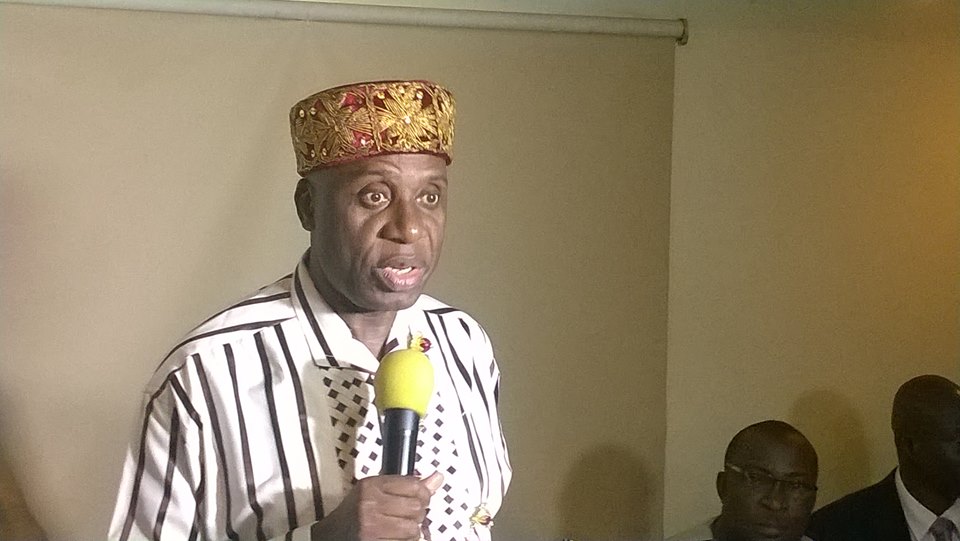Stakeholders at the Nigeria Ship Finance Conference and Exhibition (NISFCOE) held in Lagos on Monday has called for the establishment of an intervention fund to enable indigenous ship owners access fund for acquisition of ships.
Stakeholders were of the opinion that absence of access to finance has impacted negatively to the shipping development in Nigeria.
Speaking in a goodwill message at the NISFCOE conference with the theme,” Financing Sustainable Maritime Development in Nigeria”, the Chairman, Shipowners’ Forum, Barr. Mrs. Margaret Onyema-Orakwusi posited that the time was bow for government to think of establishing an intervention fund for the shipping industry so as to allow shipping growth in Nigeria.
According to Orakwusi,” So, it may be also wise to think about intervention fund for the industry in order to allow shipping growth in the country and it is very important that this issue is addressed. Why do I say so? We generate a lot of cargoes, you talk about wet and dry cargoes, now we talk about agriculture, in three years time, Nigeria will be exporting agricultural products, are we going to continue to rely on foreign ships to transport our goods in and out of the country?
“Already we know that we import everything and we export also our crude oil and some other things. So, it is good we start working now in order to position ourselves to be able not just to carry the cargoes today but the cargoes to be added through these drive from agricultural products. We need to do this”.
She observed that there were so many auxiliary companies that would gain from what they do in shipping as pointed out that the banks would benefit tremendously the moment the carriage of goods on Free on Board (FOB) basis was stopped.
“So, when they charge other people 13%, they need to encourage us by charging us much less than the 13% knowing that when we stop doing FOB, they will have a larger share of the market.
“Once we stop doing FOB because we now have the modern ships, there will be more businesses available for our insurance companies and other services that go with the maritime industry like the maritime lawyers. Most of these contracts are not drafted in our country. What does that mean? We are losing a lot”, she said.
She therefore harped on the need for all hands to be on deck to encourage the development of the national fleet adding that all stakeholders were in it together and would grow the industry together.
On his part, Sir Peter Olorunfemi of Peter Maritime Consulting reiterated the need for the establishment of the intervention fund with a call on the Central Bank of Nigeria (CBN) to earmark at least N2 billion as intervention fund arguing that if such was done for the aviation sector, why not the shipping industry.
Olorunfemi maintained that if indigenous banks could not have the courage to finance shipping development in Nigeria, foreign banks would equally not participate.
He disclosed that the Nigerian banks were disappointed with the way the Nigerian Maritime Administration and Safety Agency (NIMASA) handled the Cabotage Vessel Finance Fund (CVFF) which translated to taking the banks ten steps backward in their quest to finance the shipping sector in Nigeria.
He stated that many banks which were left out as part of the Primary Lending Institutions (PLIs) scrambled to be included as PLIs only for NIMASA to renege disbursing the funds.
He maintained that unless the CVFF was disbursed, Nigerian banks will not support the ship financing in Nigeria.
He therefore called on the Federal Ministry of Transportation to disburse the CVFF within the next two months saying that it was possible even as he challenged the Director-General of NIMASA to meet with him at the end of the event for an insight into the possibility of disbursing the CVFF to indigenous ship owners.
Responding, the Minister of Transportation, Rt. Hon. Chibuike Rotimi Amaechi stated that the government was aware that vessel financing could involve multi jurisdiction as it was not peculiar to the laws of Nigeria adding that,” If we want the shipping industry to grow, government must step out of its comfort zone and support indigenous players”.
Represented by the Director-General of NIMASA, Dr. Dakuku Peterside, Amaechi pointed out that the government of President Muhammadu Buhari, particularly the Federal Ministry of Transportation was ready to partner stakeholders to find steady solution to financing investment in shipping and shipping development.
“We are also going to partner with the financial institutions, we are also going to partner with regulatory agencies to ensure that our people, stakeholders in the industry get the needed support to grow our shipping industry and ship building industry”, he said.
The Minister however pledged the support of the Ministry so as to ensure that the conference was not a one off event but a yearly event where ship financing options would be effectively explored.
Earlier in her welcome address, the convener of the conference, Ezinne Azunna Udemmadu pointed that the conference was part of her social responsibility to the maritime industry as a resident journalist covering the sector over the years.
She observed that the conference was aimed at looking at policy issues relating to ship financing in Nigeria and get the best brains in the industry to brainstorm on the problem of ship financing in Nigeria and chart a way forward for the sector.
While believing that the conference would be an annual event, she appealed to all present at the event to make ship financing in Nigeria work.
Send your news, press releases/articles to info@primetimereporters.com. Also, follow us on Twitter @reportersinfo and on Facebook at facebook.com/primetimereporters or call the editor on 07030661526, 08053908817.

